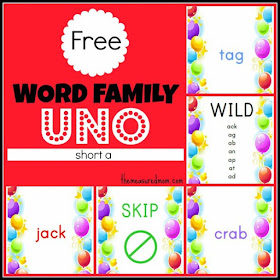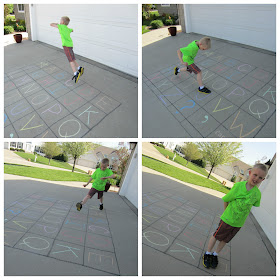My son said, "I buyed it" the other day. You'd
think he'd uttered a four letter word. This writer with an B.A. in English
nearly had to cover her ears. Okay, I am being a tad overdramatic. But it was certainly
annoying enough to inspire this game.
I used the same template to make the cards as our Irregular
Plural Nouns Go Fish game. There are TWO decks of cards for this game,
though.
 |
Black and white cards = present tense verbs
Colorful cards = past tense verbs
|
I printed the cards on cardstock, shot the pages with
spray glue, and attached different papers to the backs of each deck (I used black
and white music note scrapbook paper for the present tense verbs and solid
green paper for the past tense verbs). Then I used my paper trimmer to cut out
the cards.
Download a 6-page PDF of the playing cards here.
Time to play!
Keep the decks of cards separated and shuffle each well.
The game is played like slap jack.
Set a timer for 6-10 minutes (or longer).
Turn the top card on the present tense deck (black and
white cards) over so each player can read it. Leave it face up.
Now begin turning the colored (present tense) cards over
one at a time, forming a pile. The player to spot the past tense version (e.g.
left) of the present tense verb (e.g. leave) and slap the card first gets to
take all the cards underneath.
The player counts those cards and the number is written
down on a makeshift scorecard. The colored cards won by the player are combined
with any remaining colored cards and a new present tense card is flipped over;
play continues.
When the timer goes off, tally each player's score.
Whoever has the highest number wins!
My son creamed me at this game. I'd like to blame the
fact that I was snapping pictures, rather than my poor reflexes.
This was so much fun that my son asked to play SLAP IT! again later that same day!




.jpg)



.JPG)









.jpg)











.jpg)










.jpg)








